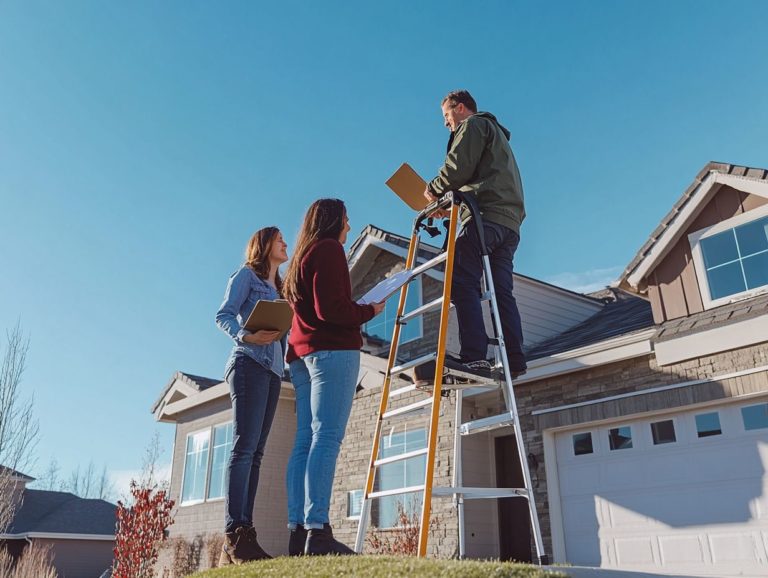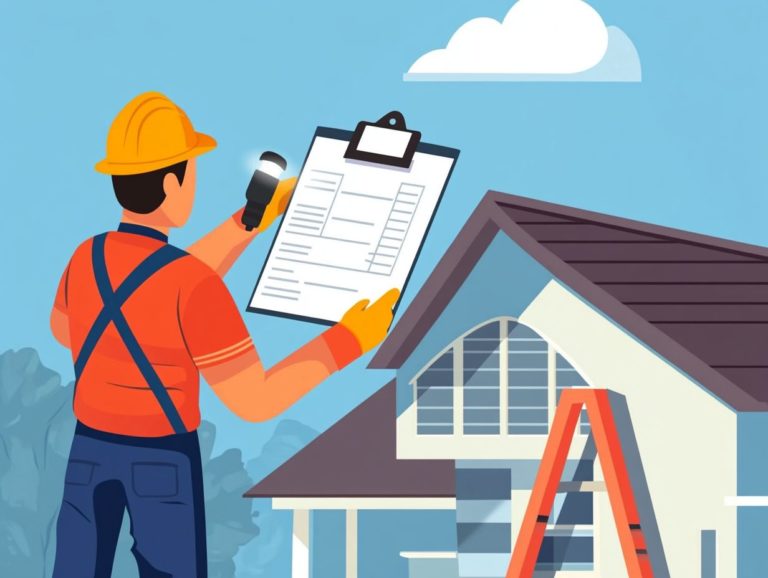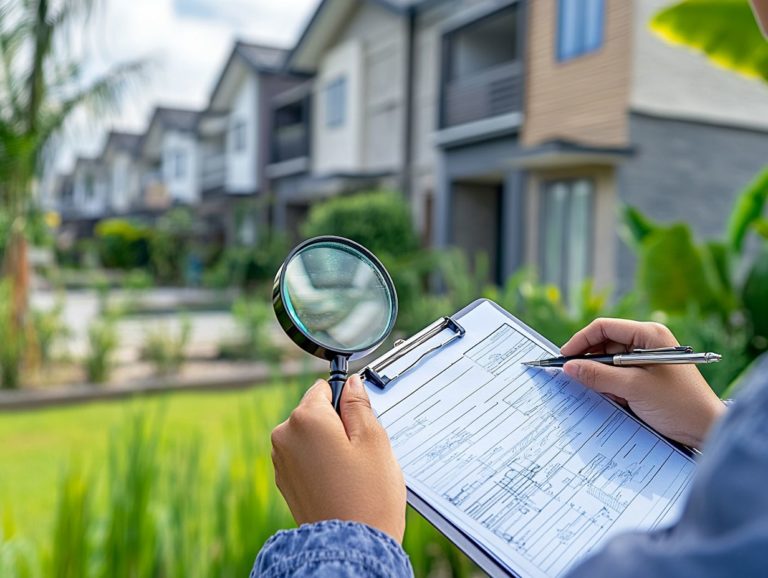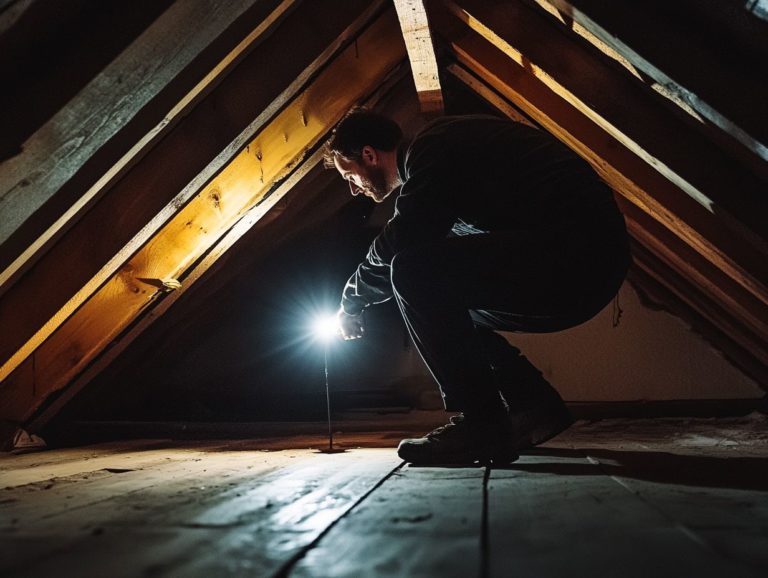The Role of Home Inspections in Buyer Confidence
Buying a home stands as one of the most significant decisions you will ever make, and grasping the nuances of home inspections is essential to that journey.
This article delves into everything you need to understand about home inspections, from their vital role in uncovering potential issues to bolstering your confidence as a buyer.
It leads you through the entire process, points out common red flags, and provides valuable tips on how to prepare for your inspection.
By the end, you will be equipped with the knowledge to make informed decisions as you navigate your home-buying experience.
Contents
Key Takeaways:
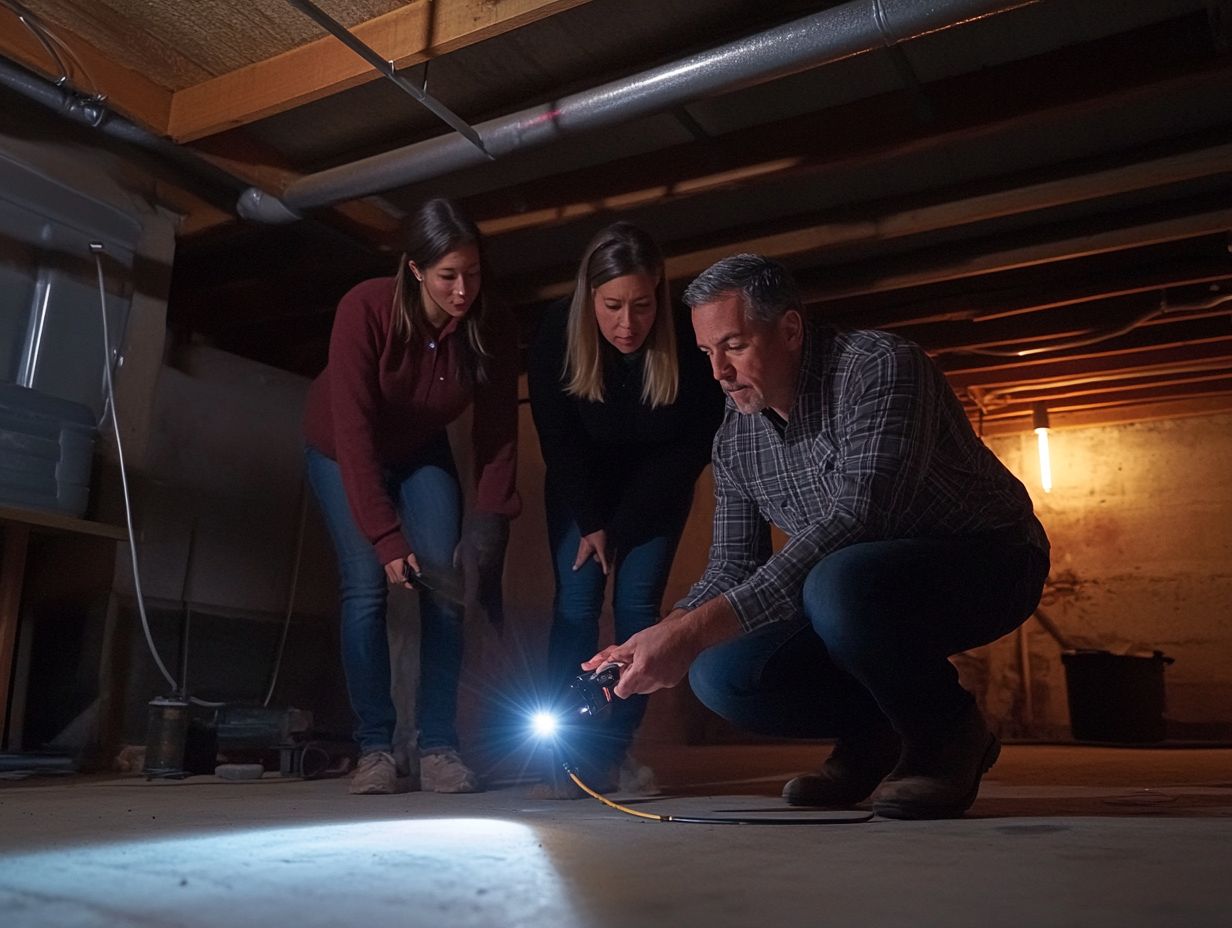
Home inspections provide buyers with a thorough understanding of the condition of a property, helping them make informed decisions and avoid potential issues down the line. By identifying any potential problems, the role of home inspections can increase buyer confidence by giving them peace of mind and ensuring they are making a sound investment. To ensure a successful home inspection process, buyers should choose a reputable inspector, communicate effectively, and prepare for the inspection by understanding the steps and common issues that may arise.
Understanding Home Inspections
Home inspections are essential in real estate transactions, allowing you to grasp the true condition of a property before making any commitments.
By engaging certified inspectors to assess various factors like electrical systems, plumbing issues, and structural integrity, you empower yourself to make informed decisions. Understanding the role of home inspections in real estate transactions cultivates trust between you and the seller, safeguarding your investment.
Home inspections also serve as a critical negotiation tool, providing valuable insights that can shape repair requests and enhance your negotiating power.
In this guide, you ll discover more about the importance of home inspections and how they can significantly influence your real estate dealings.
What is a Home Inspection?
A home inspection is a careful check conducted by a certified inspector to thoroughly assess the condition of a property, covering a wide range of systems and structures.
This comprehensive check includes a careful examination of essential elements such as plumbing and electrical systems, ensuring they meet safety standards and function efficiently.
Heating, ventilation, and air conditioning (HVAC) units are also inspected to verify their capabilities, while the structural integrity of the home is scrutinized for any signs of potential weaknesses or damage.
The resulting inspection report is a vital tool for both buyers and sellers, highlighting any existing issues and aiding in negotiations for repairs or price adjustments, underscoring the value of home inspections for home sellers.
Understanding these key points can empower you to make confident investment choices and better prepare for future maintenance needs.
Why Home Inspections are Important for Buyers
Home inspections are crucial for you as a buyer, offering comprehensive insight into the property’s condition and understanding the importance of home inspections.
This empowering knowledge equips you with valuable negotiation leverage in real estate transactions, ensuring you make informed decisions every step of the way.
Benefits of a Home Inspection
The benefits of a home inspection go far beyond just assessing the property; they equip you, whether you’re buying or selling, with invaluable insights that empower you to make informed decisions.
This knowledge ensures the property is safe and meets essential standards an aspect that is crucial for your peace of mind. Act now to avoid costly repairs later!
For buyers, a detailed inspection report becomes a formidable negotiation tool, allowing you to address concerns or adjust your offer price with confidence. Additionally, understanding the role of home inspections in new construction can enhance your strategy. As a seller, presenting a clean inspection report can strengthen your negotiating position, showcasing transparency and fostering trust with prospective buyers.
Ultimately, these insights not only protect your investment but also facilitate a smoother, more assured transaction process.
How Inspections Can Increase Buyer Confidence
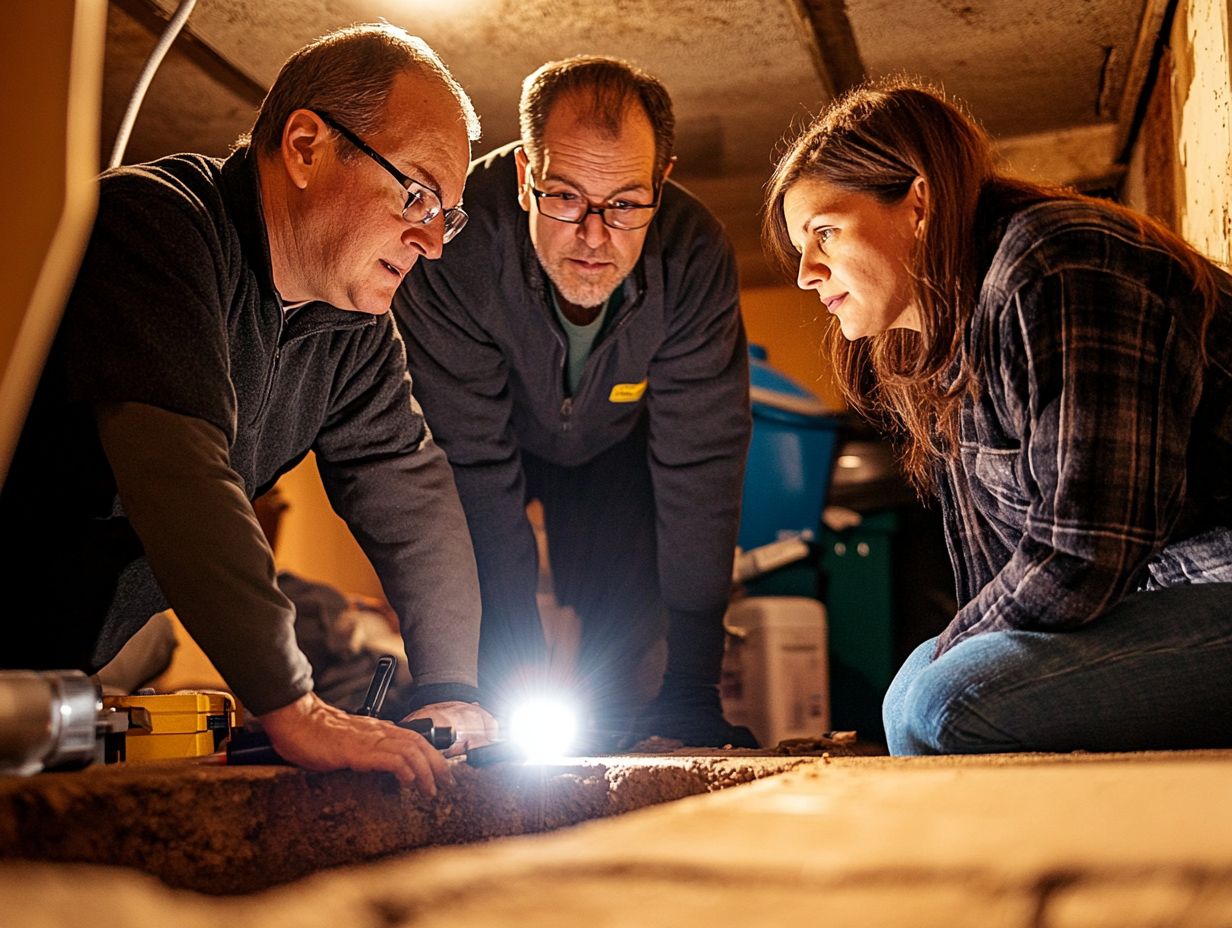
A thorough home inspection significantly boosts your confidence as a buyer by uncovering potential problems that may lurk within the property. Understanding the role of home inspections in buyer confidence provides clarity, helping you make smart choices and easing the anxiety that often accompanies such a significant investment.
With detailed inspection reports in hand, you gain valuable insights into the condition of the home, giving you the power to negotiate repairs or price adjustments as necessary. Understanding the role of home inspections in buyer-seller negotiations fosters a sense of security, alleviating the emotional burden that comes with uncertainty.
You can approach your purchase with assurance, knowing you have a comprehensive understanding of what you re investing in. This ultimately leads to a more satisfying home-buying experience.
The Home Inspection Process
The home inspection process is a careful step-by-step process employed by a certified inspector, designed to evaluate a property comprehensively. This helps both buyers and sellers understand the various aspects of the property s condition.
Steps and Timeline
The timeline for a home inspection can vary based on the size and complexity of the property, but it generally unfolds in a systematic manner, leading to a thorough assessment.
First, you’ll want to schedule the inspection, which typically takes a day or two to arrange, depending on the availability of both the inspector and yourself.
When inspection day arrives, be ready for the examination to last anywhere from two to four hours. During this time, professionals will evaluate the home’s overall strength, plumbing, electrical systems, and safety.
Join the inspector during the walkthrough to ask questions and learn. This is your chance to gain valuable insights.
Once the assessment is complete, the inspector will need a few days to compile their findings. This detailed report will outline any issues discovered, complete with photographs for clarity. It equips you with the essential information needed to make informed decisions about your prospective home.
Common Issues Found During Home Inspections
During home inspections, you may encounter several issues such as structural defects, plumbing concerns, and electrical system problems. Each of these can compromise the safety and integrity of the property, making it essential to address them thoroughly.
Identifying and Addressing Red Flags
Identifying red flags during a home inspection is absolutely crucial for buyers. These indicators can reveal potential problems that demand immediate attention or warrant negotiation.
Home inspectors are trained to spot specific signs think water damage, electrical issues, or structural concerns that can significantly impact both the safety and value of the property.
For example, a leaky roof or outdated wiring not only signals current issues but also hints at potential future expenses you might face.
It s vital for buyers to take these findings seriously during negotiations. This information can empower you to request necessary repairs or a price reduction. Address these concerns before finalizing your purchase. Overlooking them could lead to financial burdens.
Working with a Home Inspector
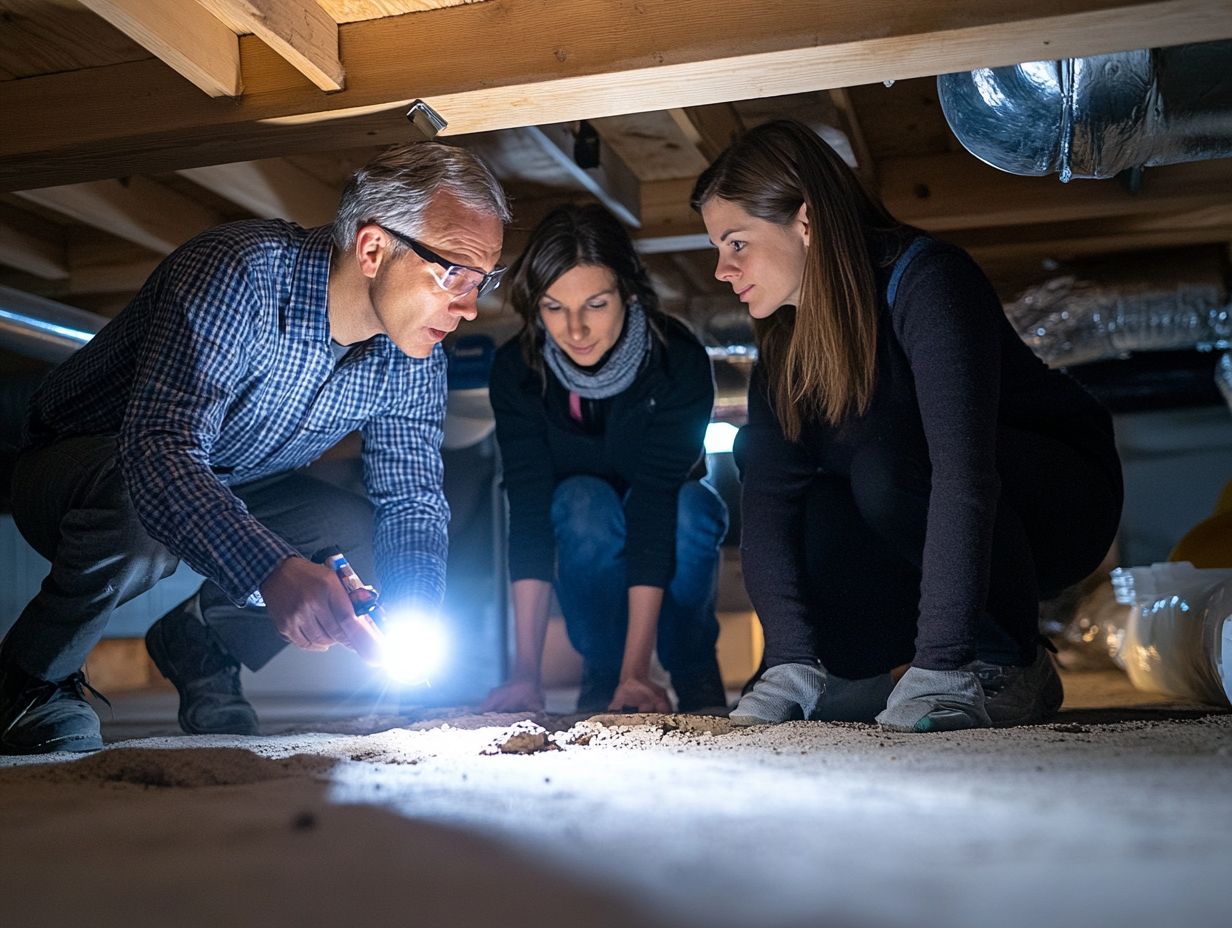
Partnering with a home inspector is a collaborative endeavor that hinges on effective communication among buyers, sellers, and certified inspectors. Understanding the role of home inspectors in this synergy is essential for conducting thorough evaluations and achieving satisfactory results.
Choosing the Right Inspector
Choosing a home inspector is crucial. Their experience and skills can greatly impact the inspection process for both buyers and sellers.
Look for inspectors with proper qualifications, like recognized memberships or a valid state license.
Review their background for a solid track record, backed by positive client testimonials.
Effective communication is key. You need an inspector who is thorough and ready to explain their findings.
This openness builds trust and helps everyone navigate repairs or negotiations more easily.
Tips for Buyers to Prepare
Preparing for a home inspection sets the stage for a smooth process. It helps you understand the property better and make informed decisions.
Steps Before, During, and After the Inspection
Knowing what to do before, during, and after a home inspection enhances your experience. Start by researching common issues in your desired neighborhoods.
Prepare a list of questions to discuss with the inspector; this can be very helpful.
During the inspection, participate actively. Walk alongside the inspector, ask questions, and take notes to better understand the home’s condition.
Once you receive the inspection report, review it carefully. Decide on your next steps, like negotiating repairs with the seller or consulting experts for major findings.
Frequently Asked Questions
What is the role of home inspections?
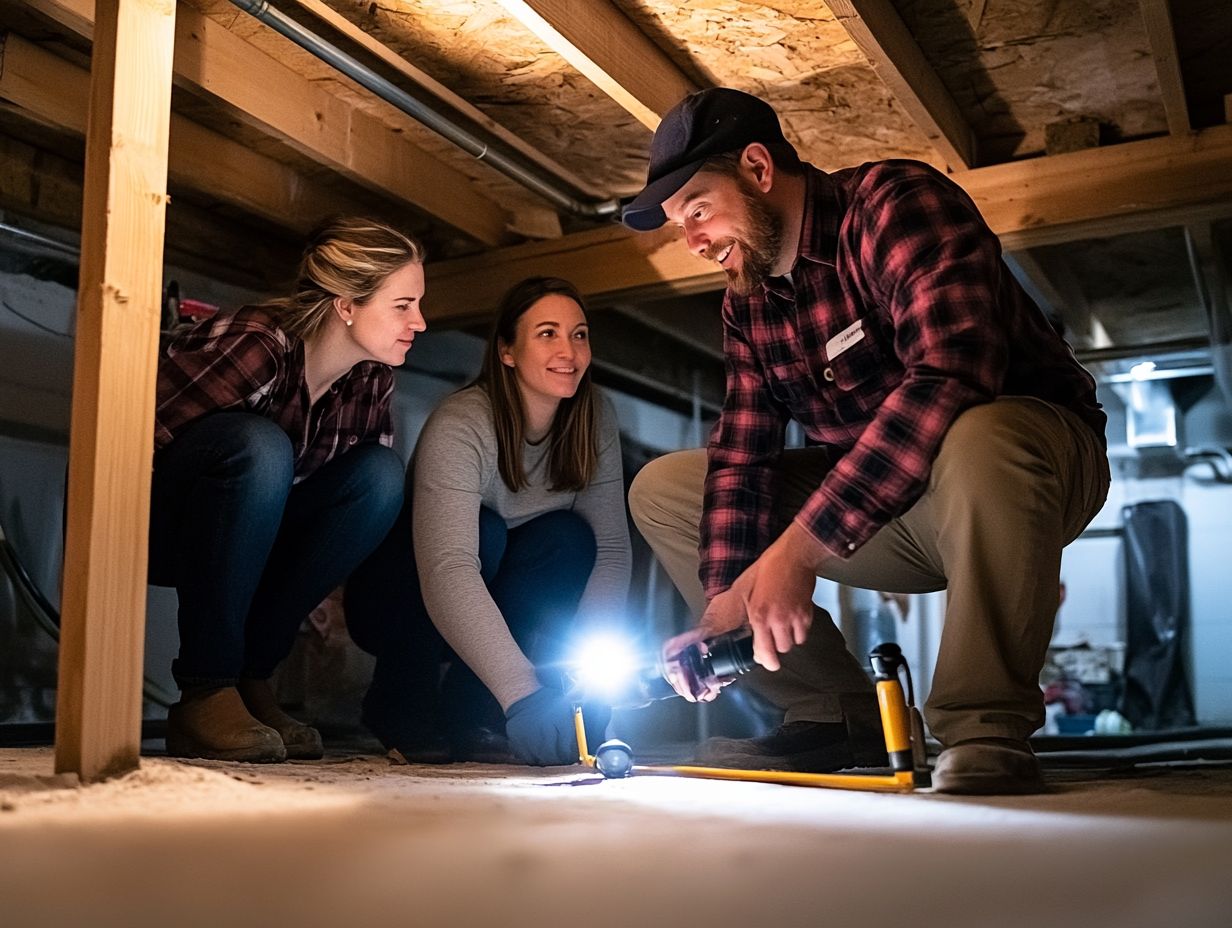
Home inspections assure buyers about the condition of a property. They help buyers make informed decisions and understand the role of home inspections in home sales, boosting confidence in their purchase.
What is the purpose of a home inspection?
The main purpose is to identify potential issues in a property. This includes structural, mechanical, and safety concerns that could affect its value.
Who conducts a home inspection?
Licensed and certified professionals typically perform home inspections. This may include home inspectors, structural engineers, or contractors.
Are home inspections required?
Home inspections are not legally required but are highly recommended. They provide buyers with a clear understanding of the property and its potential issues.
What if major issues are found?
If significant problems are uncovered, buyers can renegotiate the price or ask the seller for repairs. In some cases, walking away from the deal may be an option.
How often should inspections be done?
It s a good practice to have a home inspection before purchasing. Regular inspections every 3-5 years or after major changes are also wise.


